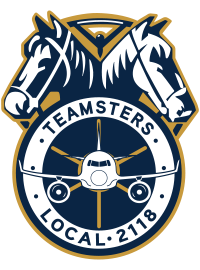2025 Q2 FOQA Committee Update
Operational Vigilance: A Mid-Summer Safety Reminder
As we reach the peak of our operational calendar, it’s more important than ever to remain vigilant and committed to the fundamentals of safe flight operations. The summer months bring increased flight volume, tighter schedules, and higher stress levels, all of which can contribute to complacency. But complacency is not just a personal risk; it’s a collective threat. As crewmembers, we must hold ourselves and each other accountable to ensure we are following procedures precisely and consistently. The safety of our passengers, our aircraft, and our fellow crew depends on it.
Recent Event Summaries & Safety Lessons
Event 1: A crew initiated a go-around at just 200 feet AGL while the aircraft was still in a clean configuration. Unaware that the flight guidance system would not provide go-around cues in this state, the crew continued descending. It wasn’t until they manually disconnected the autopilot that they began to recover. During the go-around maneuver, the crew oversped the flaps. This incident underscores the critical importance of configuration awareness and understanding how automation behaves under different conditions.
Event 2: A crew called for TOGA power to execute a go-around but failed to realize that the autopilot was disengaged. Despite applying full thrust, the aircraft continued to descend because no one was actively flying it. The crew’s lack of awareness regarding the automation state nearly resulted in a terrain conflict. This serves as a stark reminder that automation is not a substitute for vigilance. We must always verify the aircraft’s response and be prepared to take manual control when needed.
Event 3: A crew climbed to FL400, above the aircraft’s certified service ceiling. This exceedance was caught by dispatch. While the aircraft remained controllable, operating beyond certified limits introduces unnecessary risk and could have serious consequences. Aircraft limitations are not suggestions; they are hard boundaries that exist to protect us and the integrity of the operation.
Exceedance Awareness & Unreported Incidents
We receive multiple flights daily that are having flap and gear speed limitations exceeded and never reported or appropriately logged in with maintenance. The Airbus will not notify a pilot of an exceedance until well beyond the limitation, and the Boeing makes no alerts at all. It is the responsibility of the crew to operate the aircraft within limitations at all times.
Stabilized Approaches – What “Stable” Actually Means
Stabilized approaches are becoming a major concern. Currently, in VFR conditions, we are to be stabilized by 500 AGL. This means:
- Fully configured
- At or very near approach speed
- Engines spooled
- Vertical and lateral path on track
- Landing checklist complete
From this point, small corrections to hold each parameter are acceptable. However, crossing 500 AGL at 40 over reference speed but correcting is not a minor adjustment. Adding the landing flap at 200 AGL is not stable. As professionals, you should be going around for another attempt.
It’s Time to Recommit
These events are not isolated anomalies. They are symptoms of a broader issue: a gradual erosion of procedural discipline and crew coordination.
As professionals, we must recommit to the basics. Thorough briefings, clear communication, and strict adherence to procedures are non-negotiable. We must challenge and support one another in the cockpit. If something doesn’t look or feel right, speak up. Ask questions. Verify. Cross-check. These are the habits that keep us safe.
Final Thoughts
Let’s also remember that our job doesn’t get easier just because we’ve done it a thousand times. In fact, that’s when it becomes most dangerous—when routine dulls our edge. We must fight that drift. Stay sharp. Stay engaged. And above all, stay accountable.
We are only as strong as our weakest link. Let’s not allow these mistakes to repeat themselves. Hold yourself accountable. Hold your fellow crewmembers accountable. That’s how we protect each other, and the passengers who trust us with their lives.
In Solidarity,
Shawn Rials
FOQA Committee
